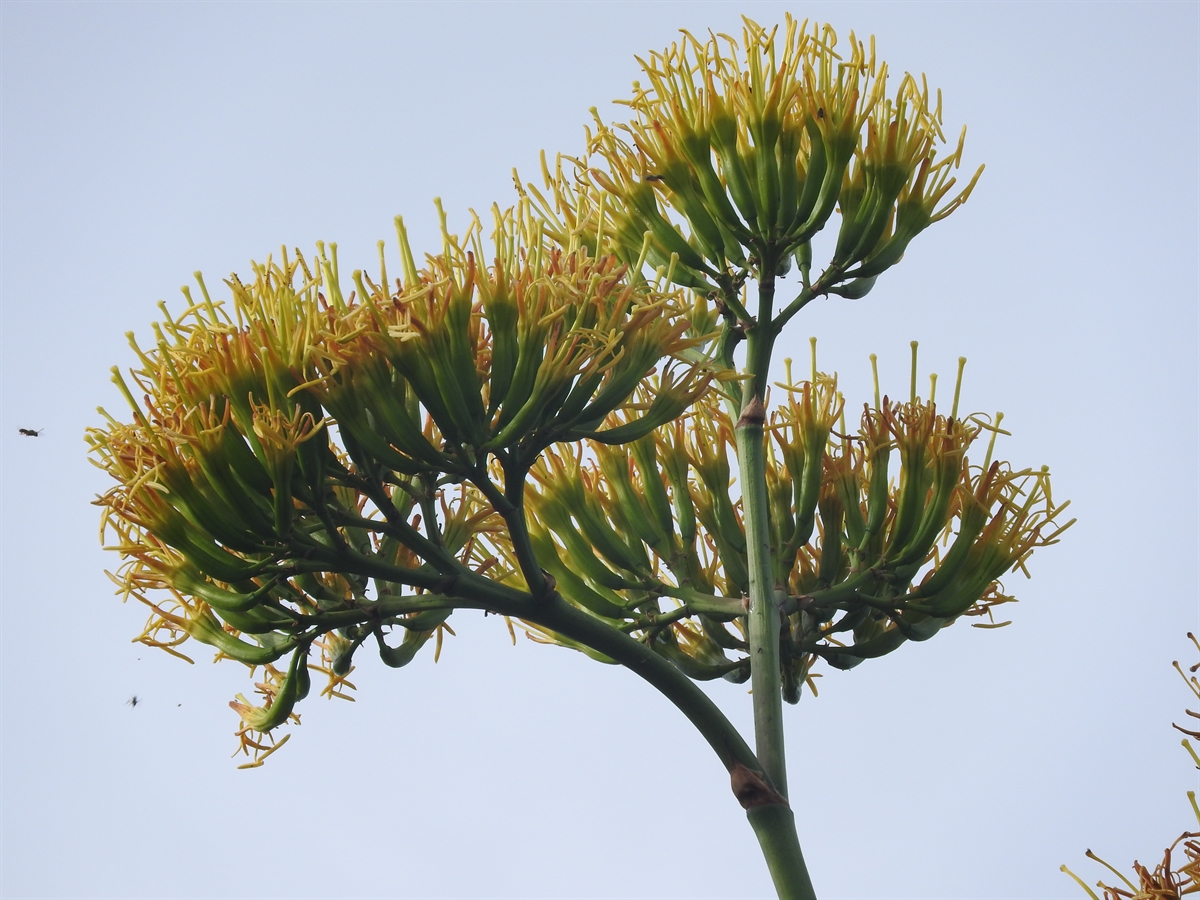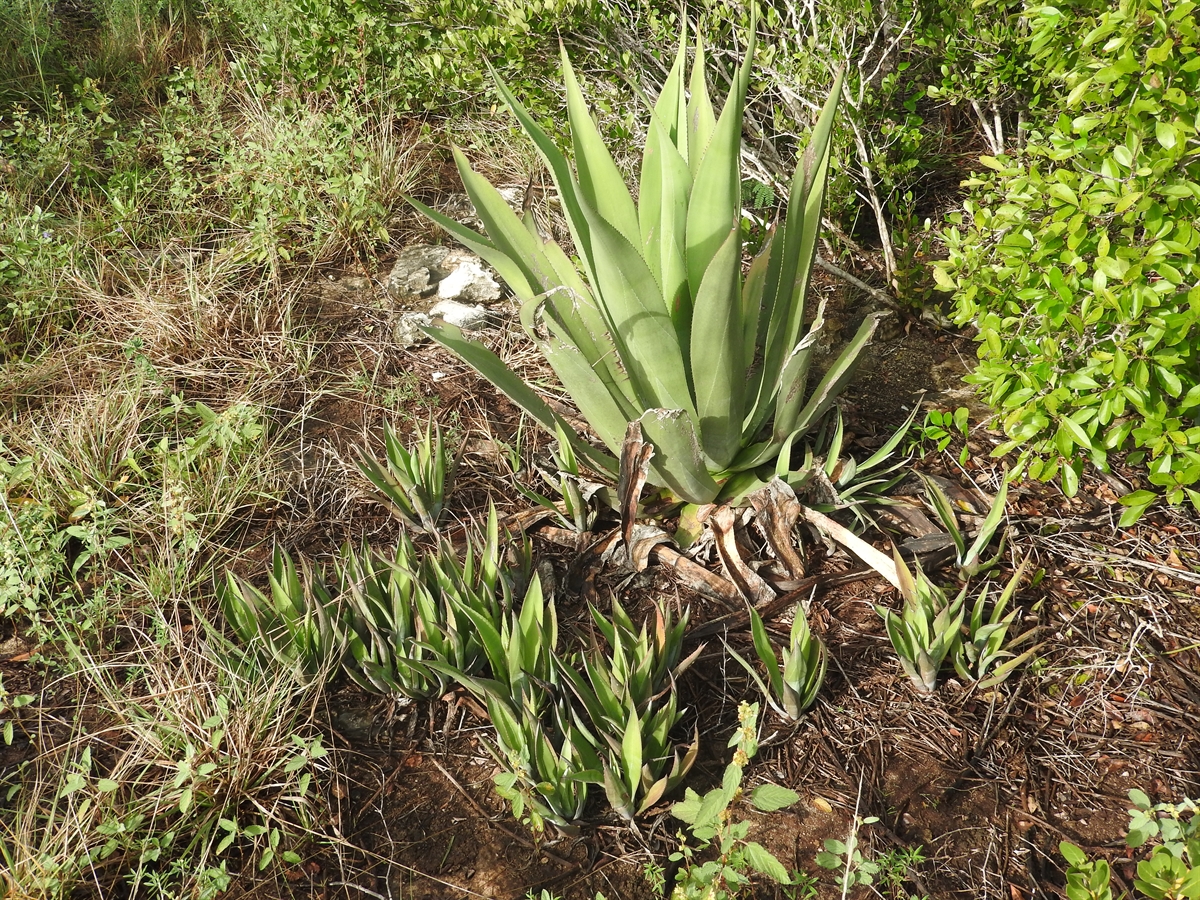Habit: Agave indagatorum grows as an acaulescent, semi succulent shrub. The leaves are arranged in a basal rosette producing new leaves from the center every year. The leaves are gray green, up to 2.5 meters in length and 25 cm in width, slightly plicate. The leaf apex is modified into a stout, reddish brown grooved spine. Leaf apical spine not recurved, and the leaf margin is green with curved prickles 1-1.5 cm apart. It does not produce pups at the base.
The complete, perfect, actinomorphic flowers are arranged in a terminal panicle to 5 meters in height. The calyx has 3 unfused green sepals. The corolla has 3 yellow, unfused petals. There are 6 unfused stamens. The superior ovary has 3 locules and numerous seeds. The fruit is a light brown capsule at maturity. The plant uses the entire apical meristem during flowering and will die off after the fruits become mature.
Habitat: Agave indagatorum grows on a limestone substrate in Dry Broadleaf Evergreen Formation – Shrublands and Pine Woodlands.
Distribution: Agave indagatorum is an endemic species known to occur in the central island groupings in the Lucayan Archipelago.
Medicinal/Cultural/Economic usage: Agave indagatorum is not used medicinally in the Bahamas.

